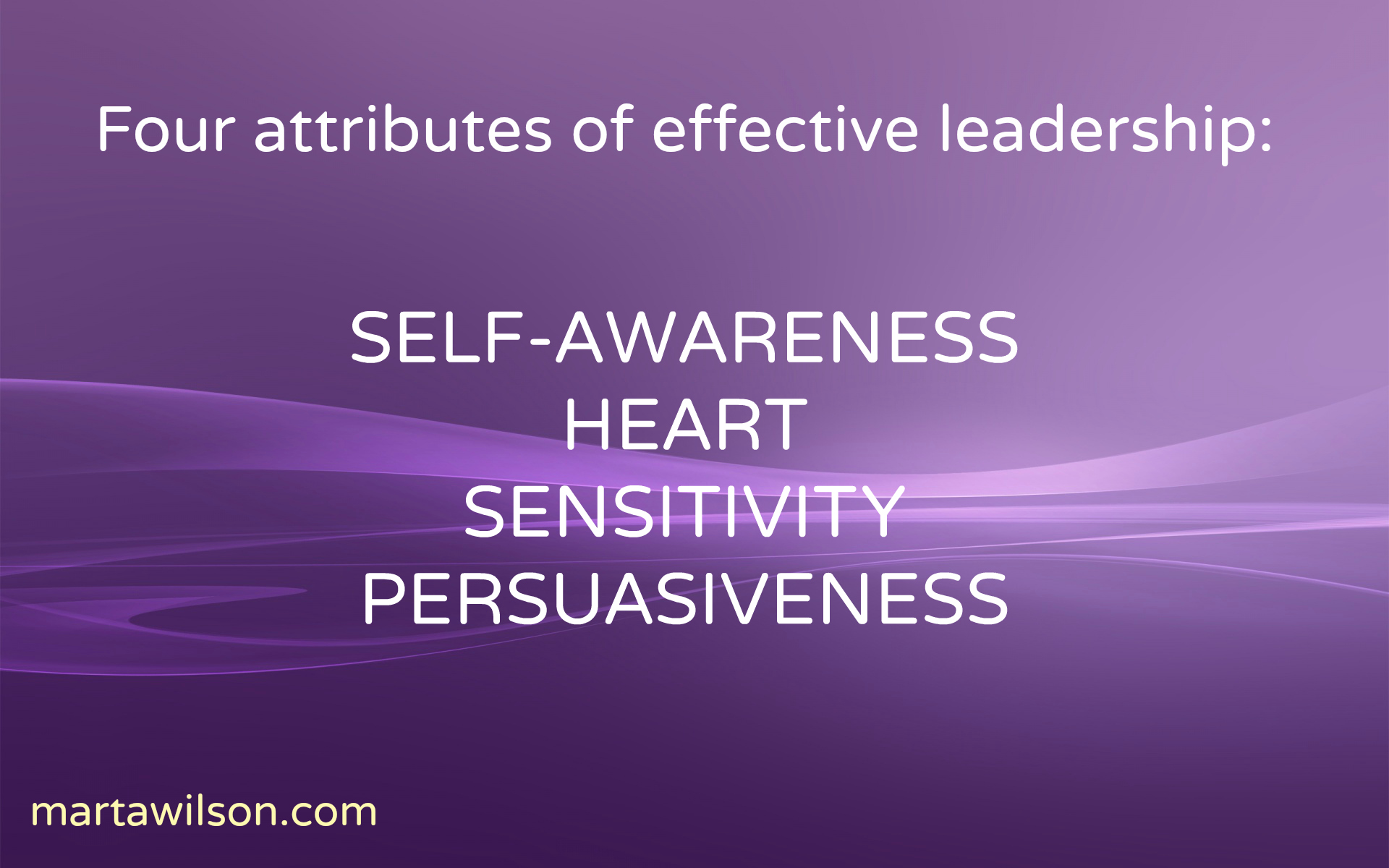
FOUR ATTRIBUTES OF EFFECTIVE LEADERSHIP
Effective leadership lies at the core of an energized enterprise. As outlined in my last post, Signs of Effective Leadership, the evidence is in the energy when you walk in the door. Effective leadership determines if and how your people contribute to your organization’s achievements and how freely they can contribute the best of themselves to a bigger outcome. Regardless of how much expertise and competence are present in your enterprise, it is your leadership that determines how much of that power is tapped and how energetic your people can be. A change in leadership must precede organizational change. A change in leadership relies on improving your effectiveness while inspiring, modeling, driving, and guiding change around you. I’ve outlined four attributes found in effective leaders.
Self-awareness
People are drawn to leaders who are self-aware, and those leaders have a confidence that warrants the trust others place in them. Build your self-awareness by asking others for their insights on what you don’t know about yourself. You will become more effective, both personally and professionally.
Heart
Transformation must happen in your heart and in your habits, or change will be superficial and old habits will slip back into place when the pressure is high—just when a new and better way of working is most important. Being in touch with your people is not just a nice idea; it is crucial to the daily function and operation of your organization. This understanding enables you to capture the hearts and minds of your people, who will make their best contributions when they’re inspired and fully engaged. As the old saying goes, people don’t care what you know until they know that you care.
Sensitivity
Effective leaders can read people, and they realize that it’s imperative to listen and see things from other folks’ points of view. Listening is only a start. Being aware of the values and emotions of others is crucial for wielding influence. To have a positive impact on others, first sense how they feel and understand their position. This requires your vigilance and conscious flexibility, and you’ll need to respond in real time to feedback and to exercise social competence. If you wish to respond effectively to the people in your working environment, cultivate an awareness of what is important to them.
Persuasiveness
Effective leaders convince their followers to help them lead. This kind of persuasion requires engaging people’s hearts and minds. Many strategic decisions are never adopted, are implemented only partially, or are abandoned at the outset. When ideas are dictated, the result is often failure. But when executives first confer with colleagues to rethink their long-term priorities, plans are more likely to be adopted. You can persuade by collaboration and by exercising patience while people make their own decisions on the basis of full information. As essential steps in influencing others, take the time to establish bonds, collaborate, and be patient.


